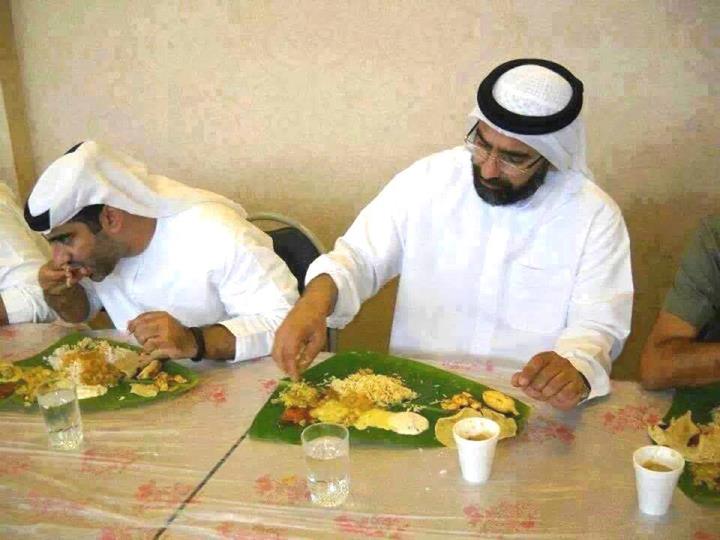Malabar's Economy Wobbles Under Demonetization, Gulf Crisis Impact

KOZHIKODE: On a first visit to Malabar, the northern part of Kerala, one notices the lush greenery of course, but even more the humongous houses.
Made prosperous by remunerations from the Middle East, Malabar has a penchant for that part of the world, which is evident in the restaurants serving shawarmas and chicken mandi rice, shopping malls and SUVs. Recently,however, demonetization, nitaqat (nationalization in Saudi Arabia) and the volatile crude oil prices have taken an enormous toll on Malabar.
The very first casualties of demonetization were the migrant labourers from Assam, West Bengal, Bihar and Orissa. Construction activities suddenly came to a standstill and they had had no means to survive. “We used to send money back home every week. With no savings left, many of my friends had to return. They are not yet back since the situation has not improved,”said Jahangir from Assam who works at a restaurant in Kozhikode.
Textile and jewellery showrooms used to bustle with activity till a few months back. Now footfalls have been reduced and many of the employees have been told to go on unpaid leave until further notice.
Demonetization has resulted in many career changes. Kumar, who was a real estate agent, had to shift to plumbing. Pradeep Kumar used to run a small business of making hand carved furniture, but now he is a daily wage worker. “Even before demonetization, the real estate sector was showing signs of an impending recession. People were apprehensive about investing and demonetization made their worst dreams come true,” says Kumar.
Even a minor economic crisis in the Gulf has its repercussions in Malabar. The beginning of the end of the good times was when the crude oil prices became volatile. Courtesy the falling prices, countries in the Middle East adopted new measures to revive the economy like levying taxes, nationalization etc. The Gulf is no more the dream destination for Malayali youth.
“My father is running a mobile phone shop in Saudi Arabia. Following nitaqat, he had to employ Saudi nationals which ate into his profits. Nowadays, he finds it difficult to send money home every month,” says 17-year old Gafoor, a plus 2 student.
The Malayali mass migration to the Middle East started in the 60s. Before that, Sri Lanka, Malaysia and Burma were their favourite destinations. There is something in the genes of every Malayali that makes him migrate to faraway places and adapt to the conditions of the alien land. 86% of the Malayali expatriates work in the Gulf countries. The total annual remittances exceed a whopping one lakh crore rupees.
Paradoxically, people who have collectively made advances in socio-economic spheres counting on remittances from aboard, look down at the migrant workers in their homeland. Malayalis allegedly do not accept migrant workers from other states into the mainstream of society.
Adding insult to the demonetization injury was the RBI’s decision to forbid cooperative banks from accepting old notes. The cooperative banks were called by some as the Swiss Banks of Kerala, meaning that these banks which do not conform to RBI guidelines are where Kerala’s black money was laundered. RBI’s justification was that the employees of cooperative banks were not trained in detecting fake currencies.
The scenario was totally chaotic as a major share of the Keralites’ deposits was with cooperative banks. The money parents had saved for their children’s marriage, funds kept aside for emergencies, retirement savings and so forth – the colour of the money did not really matter. The managers and staff of the cooperative banks had a hard time trying to pacify the customers.
Price of land in Malabar has been skyrocketing for the past few years. Some believe that the present economic uncertainties will result in a price correction. A real estate agent begs to differ – “It is a fact that business has come to a standstill, however nobody is selling at reduced prices.”
Malappuram district of South Malabar had faced unparalleled discrimination post demonetization. There were ATMs that remained closed for more than 50 days. In some bank branches, the daily withdrawal limit was as low as Rs. 6000.
Even today, very few ATMs in the region dispense 100 and 500 rupees notes. And 2000 rupees notes are not accepted by many small time shops due to the lack of currencies of smaller denominations. It might take time to ward off the demons of demonetization. How long, is the question.
“Hopefully, things will be fine. We have been through worse times... the Gulf war in the 90s and the recent recession and credit crunch in 2008. We have been resilient. This phase will pass too,” maintained Sajeev, an NRI on vacation.



